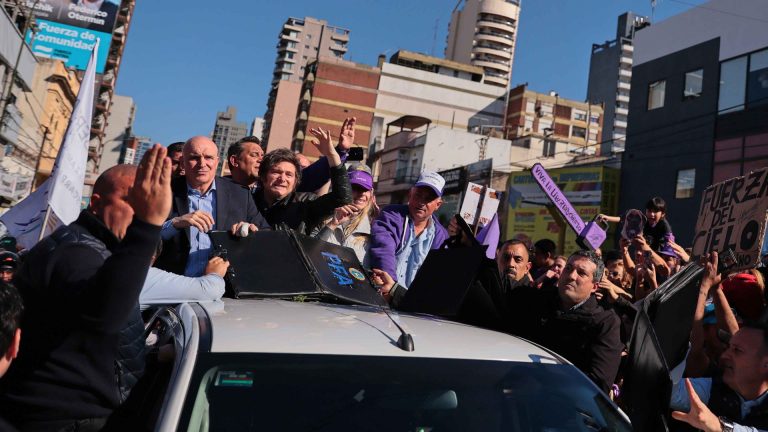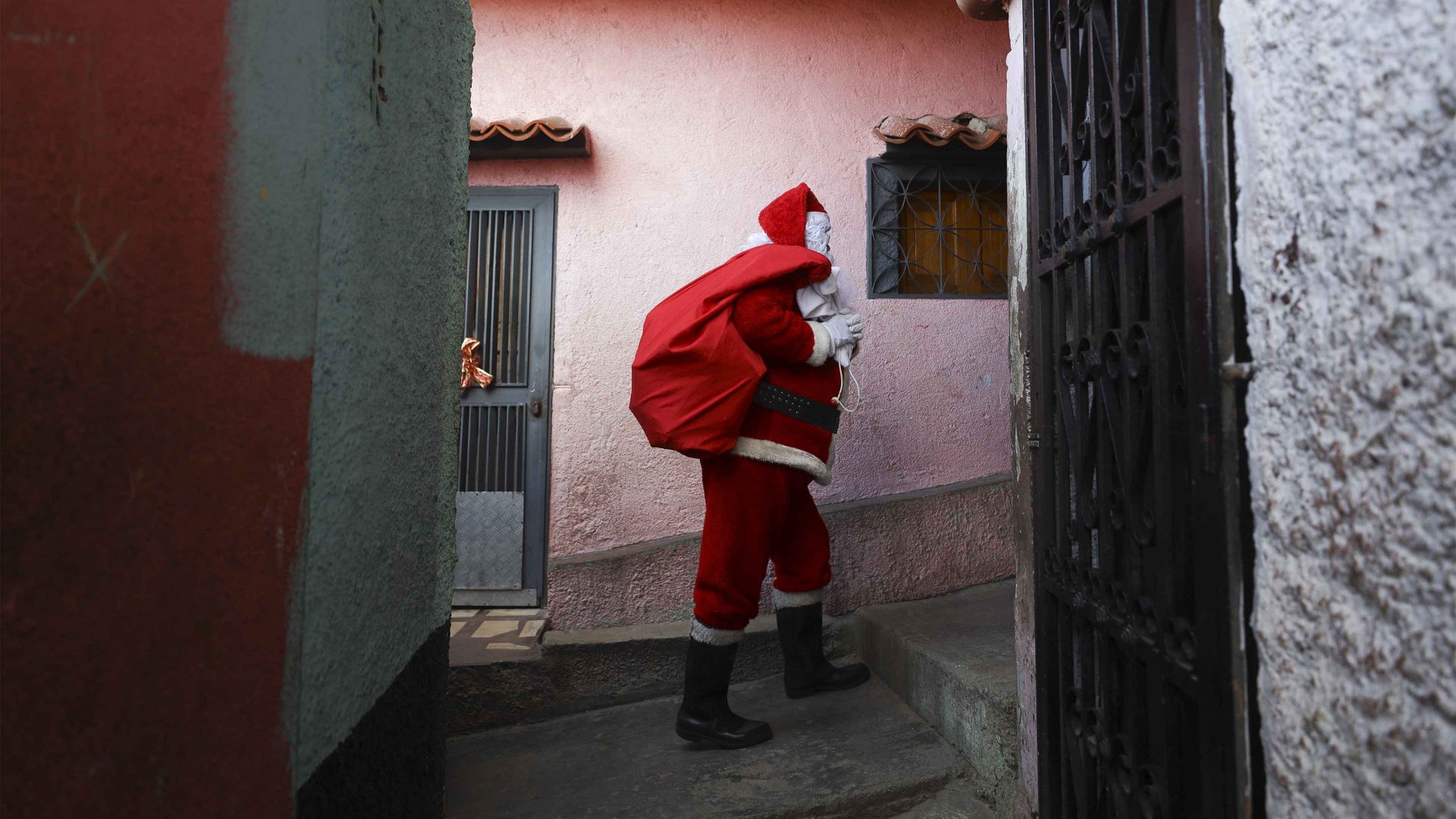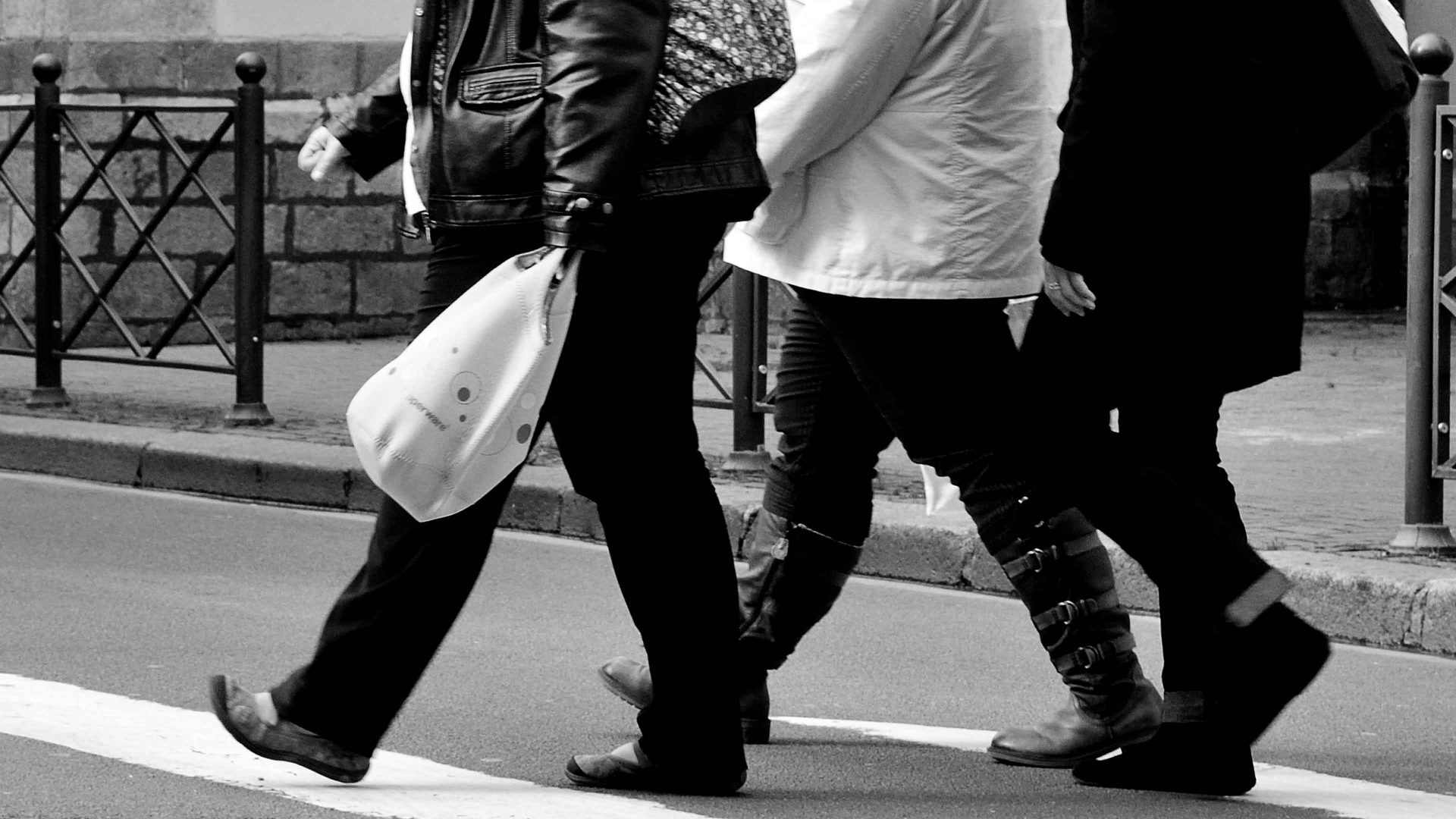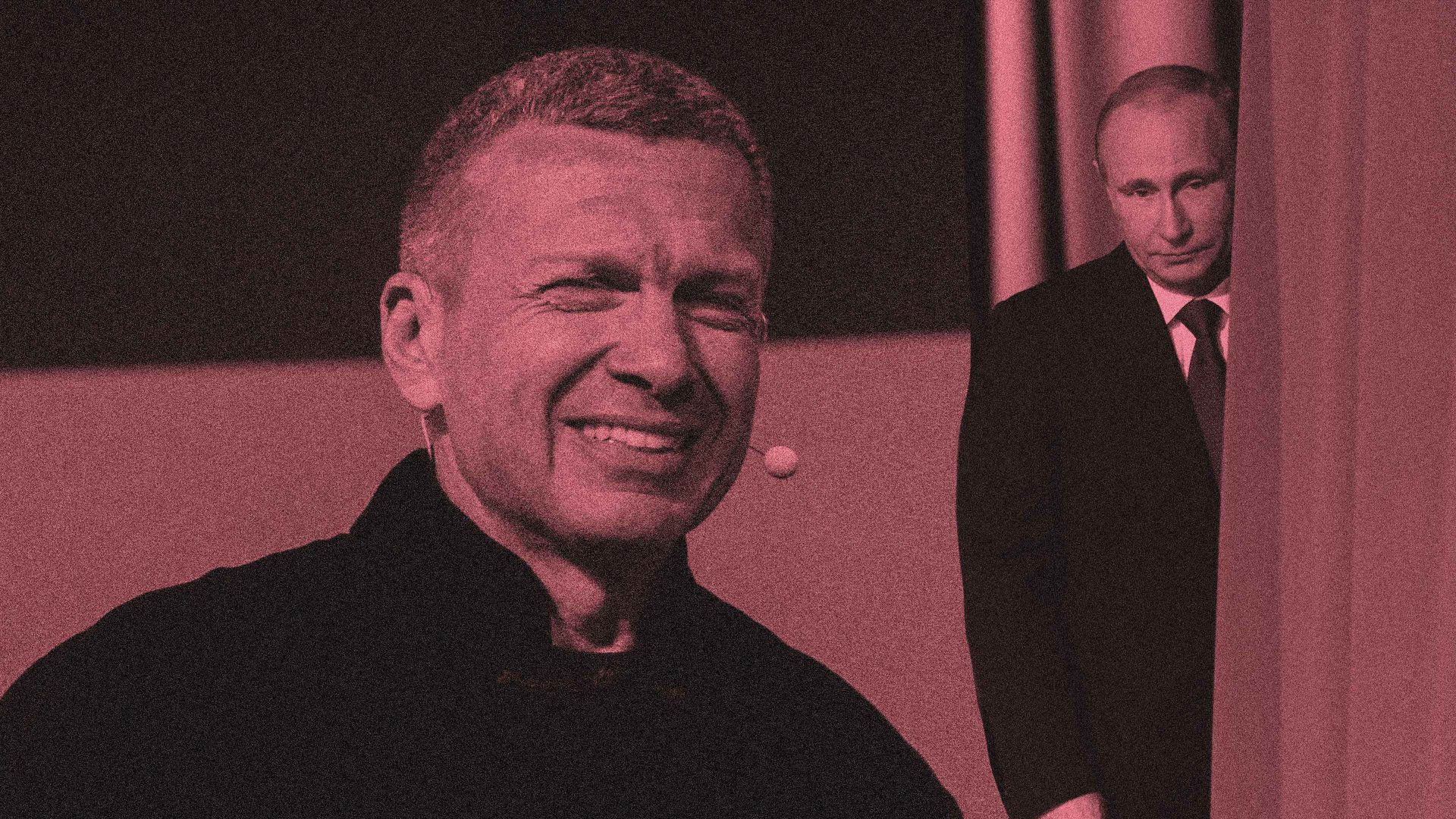Everyone is aware of “Christmas creep” at the shops, when each year the decorations seem to go on sale a little earlier. But Venezuela has just gone one step beyond. The president, Nicolás Maduro, has a plan, he says, to bring “joy” to the Venezuelan people.
“For the economy, for culture, for joy, for happiness, we are going to decree that Christmas begins in Venezuela on October 1,” the president announced on his weekly television programme, Con Maduro+.
It is, of course, an attempt to distract from the country’s ever-increasing problems – and in particular, its escalating row with the United States.
Maduro and the US president, Donald Trump, have been at odds for years, but their relationship hit a low in January 2019 when Trump broke with Caracas and recognised opposition figure Juan Guaidó as Venezuela’s interim president. A year later, in March 2020, Maduro was indicted in a Manhattan court on federal charges of narco-terrorism and conspiracy to import cocaine, with a $15m bounty placed on his head. Joe Biden’s administration increased this to $25m, and now, second-term Trump is ratcheting up the pressure further.
In recent months, Trump’s administration has accused the Chavista leader of being one of the world’s biggest narco-traffickers, doubled the reward for his arrest to $50m, and seized more than $700m in assets linked to him, including two private jets.
At the end of August, Washington raised the stakes again, deploying ships, guided-missile destroyers, and even a nuclear submarine to international waters near Venezuela – a fleet that went on to strike and kill 11 people aboard a Venezuelan boat in early September. Last week, the US destroyed a second boat. Trump said these vessels were transporting illegal narcotics, providing little further information. Venezuela’s interior minister has disputed his claim.
Maduro – branded a dictator by the international community and opposition groups – has said the US is trying to justify the launch of a “criminal attack” on his country and that Trump is seeking regime change. “All that’s left is for them to shoot at the buildings we’re sitting in, damn it,” one senior official close to Maduro told El País.
In retaliation, Maduro has begun bolstering military readiness, pledging to send 25,000 troops to Venezuela’s Caribbean coastline and its border with Colombia. He has also called on everyday citizens to bulk up the militias – armed volunteers who commit to defend the homeland – to support security forces in the event of a potential incursion, urging them to go to barracks for training sessions.
Among all of this, what better to rally his countrymen behind him than to summon Jolly Old Saint Nick? “No one in the world will take away our right to happiness, to life, and to joy,” Maduro, currently on his third six-year term in office said during his Christmas announcement.
Suggested Reading

Milei gets stoned
The region is very pro-Christmas; festive evergreens have already appeared in my local supermarket in Medellín, and the lights are expected to be hung any day now.
Last year – fresh off his disputed 2024 election win – Maduro also proclaimed an early holiday season – nothing screams “legitimate democracy” like fast-tracking the tinsel, and Venezuela obliged: lights twinkled weeks ahead of schedule and the parties began.
“It’s a way to get the country into a celebratory mood and forget about the misery this dictatorship has caused most Venezuelans,” says Víctor Alfonzo, a 33-year-old living in Anzoátegui.
“Most Venezuelans know it’s a strategy to distract from the things that truly matter,” he told me – like the fraudulent elections, extreme poverty, and decaying healthcare systems. Most people just “make fun of Maduro’s declarations”.
“But at the same time we know that for now we can’t do anything to get them out of power,” he says. “And to be honest, we Venezuelans love to party, we love to dance, be happy, and Christmas represents that for us. The early declaration makes life a little smoother.”
Since the festive announcement, things have continued to heat up. Trump refuses to rule out removing Maduro from power. “We’ll see what happens. It’s not an option or a non-option,” he said, whatever that means. Five US F-35 fighter jets landed in Puerto Rico last Saturday as part of Trump’s deployment orders, while American personnel also raided a fishing boat in Venezuelan waters, a move that Venezuela’s foreign minister, Yván Gil, called a “direct provocation”.
And so, as garlands glitter and Feliz Navidad plays on loop, Venezuela is clinging to its right to joy, as the threat of violence draws closer.
Harriet Barber is a journalist covering human rights abuses, migration, women’s rights and politics in South America



